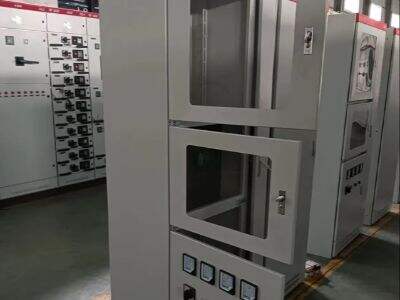Electricity is crucial for us in our daily life. It provides energy to our homes, schools and countless machines that assist us with various tasks. Electricity is essential for the functioning of most things we use on a daily basis, and without it, none of them will work. That’s why we need resilient electrical systems capable of dispatching electricity safely and efficiently. All of these parts work together as a system to ensure power keeps flowing. These components include transformers, high voltage panels, switchgear, and transmission lines. Every bit has its own work to do, but they must all cooperate like a team.
High Voltage Panels
A high voltage panel is the most critical component of this electrical system. High voltage panels function is like a center control of the electricity. It manages and shares electricity between several buildings, such as schools, offices, and homes. This is critically important for the safety of all and the continued reliable transport of electricity. A high voltage panel is essential; if it does not function well, it creates problems and accidents.
Choosing a High Voltage Panel
A few key considerations should be taken into account when selecting a High Voltage panel:
Load Capacity – In other words, identifying the electricity the building requires. Different buildings utilize different amounts of electricity, making it vital to select a panel designed to support that load.
Size and Space – Ensure That the Panel Will Fit in But Must Also Make Sure It Will Fit Within the Building If the panel is too large, it won’t function properly, and if it’s too small, it won’t be able to generate enough electricity.
Installation Type – The high voltage panels can be installed indoors or outdoors. You have to consider where the lv panel will be placed and what kind of surroundings it will be in. In some climates wet or hot or both, the operation of the panel can be affected.
Maintenance and upkeep – Keeping the panel in good condition is extremely essential. It requires periodic servicing and maintenance to ensure it operates correctly and safely. Keeping a panel without being properly taken care of could become an issue later.
Teaching High Voltage Equipment to Play Nice
High voltage systems require particular attention to safety. For preventing accidents which can physically hurt people or damage property, we have to do number of things. These are some key safety steps to be taken:
Maintenance and Inspections – High voltage panels require regular checks and maintenance. That includes checking for signs of wear and tear and making repairs as needed. Routine maintenance keeps the system in good shape.
Proper Grounding – It plays a crucial role in safety. Grounding keeps any stray electricity within the electrical circuit from wandering off or going in the wrong direction, and ensuring that electricity is grounded prevents accidents and ensures electricity does not go where it should not go.
Safe Switching Operations – Sometimes you will need to implement certain functionality by turning equipment on or off. Thus preventing any electrical hazards from occurring during switching operations. This change should be made in accordance with safety protocols.
Proper Training – Individuals working with high voltage systems should be trained appropriately. They need to be able to identify risks and understand the safety protocols they need to implement. This type of training ultimately keeps everyone safe.
High Voltage Conventional vs Digital Panels
There are mainly two available high voltage panels to pick conventional from and digital. The latter consisted of conventional panels with old-style meters and analog components, whereas the second one was constituted of digital panels which employed modern technology that offered enhanced readings andacles ons of electricity.

 EN
EN
 AR
AR
 BG
BG
 HR
HR
 CS
CS
 DA
DA
 NL
NL
 FI
FI
 FR
FR
 DE
DE
 EL
EL
 HI
HI
 IT
IT
 JA
JA
 KO
KO
 NO
NO
 PL
PL
 PT
PT
 RU
RU
 ES
ES
 TL
TL
 IW
IW
 ID
ID
 SR
SR
 UK
UK
 VI
VI
 HU
HU
 TH
TH
 TR
TR
 AF
AF
 MS
MS
 IS
IS
 AZ
AZ
 BN
BN
 LA
LA
 MI
MI
 MN
MN
 KK
KK
 UZ
UZ








